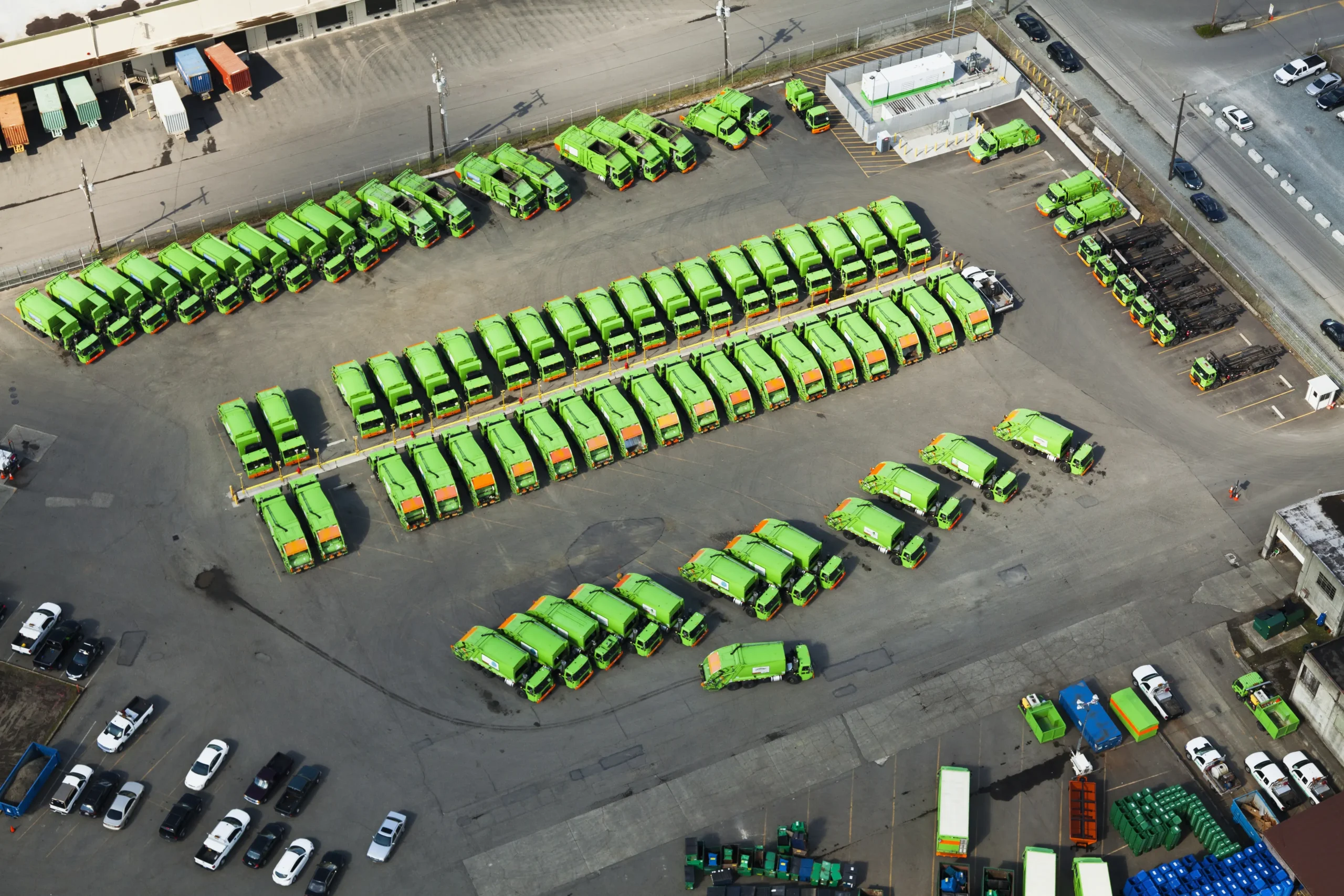Missed deliveries may be one of the most frustrating and time-consuming aspects of online shopping – both for consumers and for retailers.
In fact, research from PCA Predict found that failed and late deliveries pose a significant cost to more than 65% of businesses.
This is especially frustrating for retailers using their own vehicles to make their own deliveries – and looking to efficiently provide next day delivery without impacting profit margins.
Why do missed deliveries happen?
There are multiple aspects that may contribute to missed or late deliveries. Though most of them seem inevitable and could be chalked up to one of the challenges costs of making deliveries, invariably using the right tools and software could halp mitigate the risk of missing most deliveries. You can see an example of how in this post about avoiding missed deliveries with the use of SMS notifications or skip down to the end of this post to see how Stream can help mitigate each of these missed delivery instances.
Missed deliveries commonly happen because:
- The customer isn’t home to accept the delivery (who hasn’t waited in all day for a delivery, only for it to arrive in the five-minutes you nipped out to the shops?)
- The reason for a missed delivery slot is out of your hands (traffic, road closures and unforeseen circumstances happen to even the most reliable of drivers, after all)
- Missed or failed deliveries may have nothing to do with timing and everything to do with loading (where there are multiple parts or items on a delivery it is inevitable that, occasionally, not everything will be loaded properly in the morning before the driver sets out for their run)
- If an address is incorrect, delivery issues are bound to follow (actually, the research from PCA Predict found that the primary reason for orders now arriving on time is can be attributed to retailers not collecting accurate address data. This leads to drivers knocking on the wrong doors, or circling around seemingly endless one-way streets to find a non-existent delivery address)
Okay, we may be exaggerating here. Clearly, not all of these factors are as inevitable or unpredictable as we’ve made them out to be. Businesses using a delivery, logistics and transport management system, like Stream, are able to avoid and mitigate most of these issues before they happen, reducing the rate (and cost) of missed deliveries.
But first, let’s explore what missed and failed deliveries actually mean, for businesses making deliveries in their own vehicles and (perhaps more pertinently) for their customers.
What do missed deliveries mean for customers?
Most of us have been on the receiving (or non-receiving) end of a failed or missed delivery, so it’s not hard to see how inconvenient and frustrating this experience is for your end customers.
Unfortunately, it is all-too-easy for that frustration to turn into bad feeling towards your brand, and a loss of customer loyalty.
And, if nothing is done to counteract them, those bad feelings will likely solidify into complaints (taking up the time and resources of your customer services team), and negative reviews (ultimately losing repeat or referred business further down the line).
What do missed deliveries mean for businesses?
Loss of customer loyalty, negative brand sentiment and the potential for longer-term loss of business is far from the only business impact of missed and failed deliveries.
In fact, there is a much more immediate and tangible cost involved: the financial hit of rearranging deliveries and compensating customers can have a serious impact on business costs.
The cost and inconvenience of re-arranging delivery (or refunding the customer) is a very real threat to businesses making deliveries in their own fleet of vehicles. PCA Predicts’s research found that more than half of all retailers refund delivery changes and pay additional costs for re-delivery, with a further 38% offering the customer a discount by way of apology. The additional cost (both in terms of refunding or discounting the original cost of delivery or goods, and in the resources required to arrange a successful redelivery) can have a huge strain on businesses making deliveries in their own vehicles. In fact, the average cost to UK retailers resulting from each failed delivery is estimated to be s much as £14.35 – and is likely to be much higher for businesses delivering large or awkward items requiring an expert assembly or two-man lift.
Not only that but, for businesses making their own deliveries, missed, failed and late deliveries can have a knock-on effect on every other delivery on the run. When one delivery causes issues, the driver may wait for longer than normal to try to complete the delivery, so the financial impact of one missed delivery is compounded by other missed and late deliveries later in the day.
How can businesses making their own deliveries mitigate against missed deliveries?
For businesses making deliveries in their own fleet, the incentive for mitigating the likelihood of failed, missed and late deliveries is clear. They can save the cost and resources involved in redelivery, as well as improving customer service and brand loyalty.
So how does a delivery, logistics and transport management system like Stream Go help to mitigate against delivery failure? Let’s look back at the common reasons for failed deliveries:
- The customer isn’t home to accept the delivery (who hasn’t waited in all day for a delivery, only for it to arrive in the five-minutes you nipped out to the shops?). The Solution: Stream’s proactive email and SMS notifications keep your customer informed about the status of their delivery at every step of the journey. They’ll receive a 2-hour delivery slot (so there’s no need for customers to wait in all day), and an even more accurate driver ETA can be seen when the customers’ delivery is next in line.
- The reason for a missed delivery slot is out of your hands (traffic, road closures and unforeseen circumstances happen to even the most reliable of drivers, after all). The Solution: The intelligent routing and planning optimisation functionality of Stream is now integrated with Google Maps, so live traffic is actually taken into account during planning, and delays can be foreseen and dealt with quickly (so that, for example, if a driver can see that they will hit traffic on their planned route they could take a detour, or communicate with customers from directly within the Mobile Driver App, to give them plenty of warning that their delivery is likely to be late.
- Missed or failed deliveries may have nothing to do with timing and everything to do with loading (where there are multiple parts or items on a delivery it is inevitable that, occasionally, not everything will be loaded properly in the morning before the driver sets out for their run). The Solution: By integrating Stream with a back-office order and inventory management system, like Brightpearl, Veeqo or Sage 50, the entire order-to-delivery management process is managed under one system, leaving less room for error. Additionally, the use of enterprise-grade smartphones with inbuilt barcode scanners can further minimise the risk of loading error, as goods are scanned on and off the vehicle.
- If an address is incorrect, delivery issues are bound to follow (actually, the research from PCA Predict found that the primary reason for orders now arriving on time is can be attributed to retailers not collecting accurate address data. This leads to drivers knocking on the wrong doors, or circling around seemingly endless one-way streets to find a non-existent delivery address). The Solution: PCA Predict emphasises the need for retailers to “provide verification solutions that allow customers to provide as accurate data as possible”, which Stream Go now offers, thanks again to our integration with Google Maps.
Schedule your demo today, to learn more about avoiding missed deliveries with Stream.
Many business using Stream have been able to differentiate themselves from the competition through customer service and their delivery experience. We wrote an article entitled ‘How To Differentiate On Delivery With Logistics Management Software‘ about that very subject: check it out!
Frequently Asked Questions
Missed deliveries are the same thing as failed deliveries. A delivery is classed as missed or failed when it is planned, the run has departed and an attempt at delivery is made but, for some reason, the goods were not delivered, or were delivered late.








